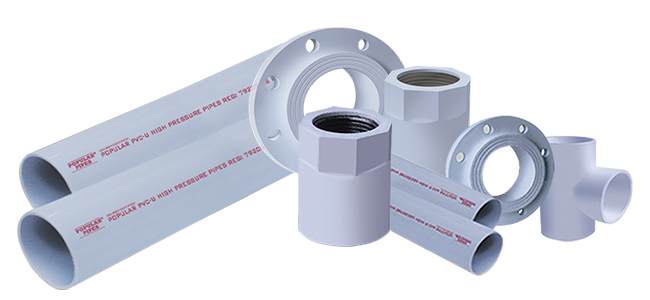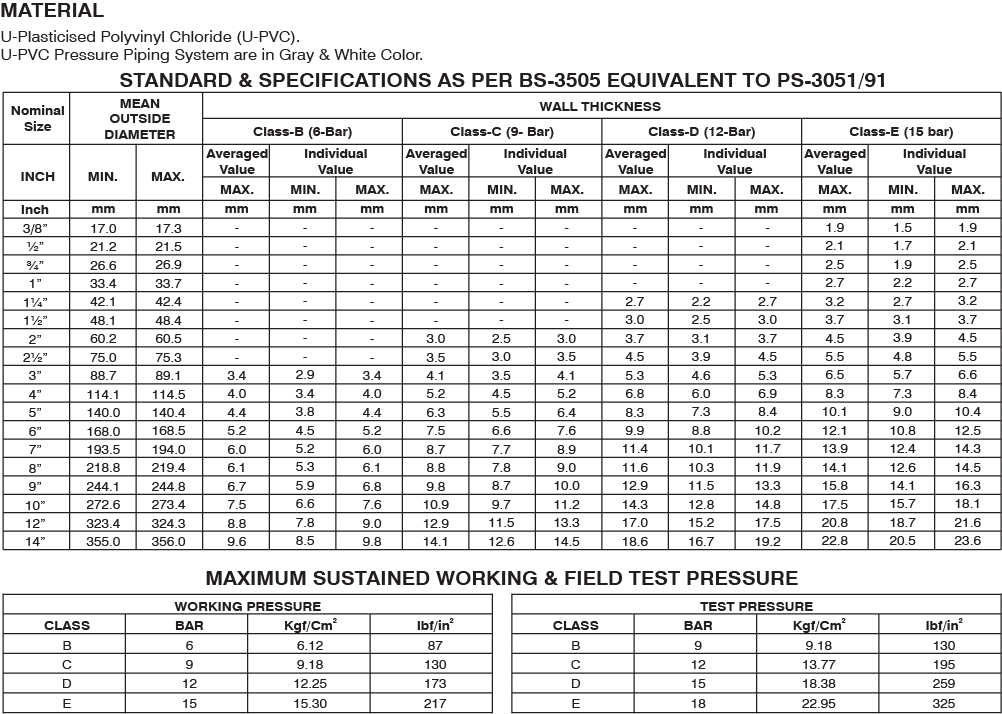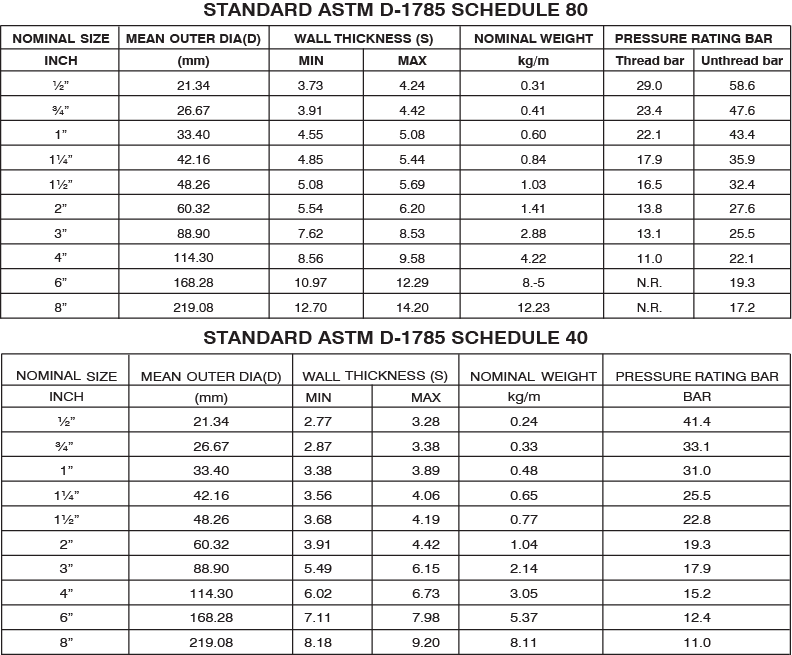



UPVC Pressure Pipes & Fittings – Water Supply System
BS-3505 equivalent to PS-3051/91 ASTM D-1785 Schedule 40, 80
JOINTING:
A wide range of UPVC Pipes & Fittings are available. They are economical, durable, leak proof, easy & quick for the connections. These Fittings include Coupling Sockets, Elbows, Tees, end Caps Flanges, (45 & 90) and reducers. UPVC Pipes & Fittings are available in various sizes for different pressure classes of Pipes. Confirming to BS, PS, ASTM & other international Standards.
POPULAR UPVC PRESSURE JOINTING SYSTEM
The following jointing systems are available,
- Solvent Cement Joint
- Z Joint/Rubber Ring Joint
SOLVENT CEMENT JOINTING SYSTEM
Procedure for Solvent Joint Installation:
- Chamfer the Pipe and at a angle of 15 or 20 to an extent for 0.5mm length
- Apply solvent cement thoroughly & evenly over spigot end and inside of socket
- Ensure that both spigot & socket are thoroughly clean
- Inset the pipe quickly into the socket
- Hold for a while say 4-5 minutes
- Wipe all excessive solvent cement with a cloth
- Leave for 24 hours before pressure testing
THINGS TO REMEMBER
Knife or half round coarse file, natural bristle, primer, application cane solvent cement & tools tray are required for solvent cement jointing.
Z” JOINTING SYSTEM
Procedure for installation:
- Ensure that the mating areas of spigot and socket are thoroughly clean. This is extremely important for the correct positioning of the rubber ring during assembly.
- Set the rubber ring into the grove, pushing it firmly in as far as it goes all the way round. The opening in the rubber ring must face backwards.
- Assess the full socket depth by simply measurement & mark spigot accordingly.
- Accurate axial alignment of the spigot & socket prior to jointing is important, hand feed spigot into rubber joint until resistance from the inner seating section is felt.
- Stop at the entry mark (13-25mm) from the end of the socket to cater for potential expansion & contraction.
- Make sure that the pipes to be jointed are aligned correctly against each other.


Advantages
- Corrosion Resistance
- Resistance to Biological
- Growth
- Flexibility
- Coefficient of Friction
- Thermal Insulation
- Environmental Benefit
- Strength to Weight Ratio
- Chemical Resistance
- Long Term Tensile Strength
- Impact Strength
- Longer Lengths
- Flame Resistance
- Favorable Cost


